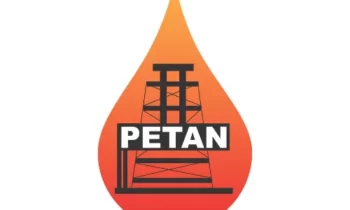The Nigeria Midstream and Downstream Petroleum Regulatory Authority has unveiled six regulations that would guide the operations of companies in the oil and gas industry to conduct transactions in line with the provisions of the Petroleum Industry Act (PIA).
The six regulations are the Midstream and Downstream Petroleum Operations Regulations; Petroleum Measurement Regulations; Assignment or Transfer of Licence and Permit Regulations; Natural Gas Pipeline Tariffs Regulations; Gas Pricing, Domestic Demand and Delivery Regulations and Petroleum (Transportation and Shipment) Regulations.
The Authority’s Chief Executive, Farouk Ahmed that carried out the exercise at the headquarters of the Authority located in Abuja disclosed to the critical stakeholders in the oil and gas industry that attended that the move is in line with the Petroleum Industry Act (PIA) 2021.
The PIA is the key legislative instrument that governs the business of petroleum operations in Nigeria and sets the rules for all activities in the petroleum sector.
The Act, according to him, emplaced a framework for the development of the relevant regulations that will support sustainable growth and investments across the oil and gas value chain in Nigeria.
The NMDPRA Boss explained that the regulations have been designed to enable businesses through regulatory clarity, certainty, fairness, transparency, and best Industry standards.
In addition to the regulations being launched, he told the gathering that 14 other regulations have been developed and would be issued soon.
He said, “I would like to commend all our stakeholders who contributed to the development of these regulations.
“In particular, my thanks goes to the Authority’s Regulations Drafting Team who worked tirelessly to deliver on this critical assignment.
“The Authority remains committed to collaborating and engaging with our industry stakeholders whilst promoting transparency and accountability, in the implementation of these regulations.”
Providing further insights about the Regulations, the NMDPRA Board Secretary, Joseph Folorunsho said the objectives of the Midstream and Downstream Petroleum Operations Regulations are to regulate the operations of the companies in the Nigerian Midstream and Downstream Petroleum sector.
He said the Regulations would provide procedures for the grant of licences, permits, authorizations and payment of fees.
According to him, it would also provide sanctions and penalties for non- compliance.
For the Assignment or Transfer of Licence and Permit Regulations; he said these set of rules would help to establish procedure for assignment or transfer of license or permit by Licensee or permit holder.
He added that the Regulation would prescribe fees for such assignments or transfer as well as provide sanctions or administrative penalties for failure to comply with these regulations.
On the Petroleum Measurement Regulations, Folorunsho said it would assist in regulating and ensuring accurate measurement and allocation of gas or its derivatives, crude oil or its derivatives.
Through this Regulation, he said the Authority will be able to determine the basis for calculating revenue accruing to government, licensees, contractors, and other parties in the midstream and downstream petroleum operations.
It would also provide sanctions or administrative penalties for failure to comply with the regulations.
He said, “This regulation has said metering must be installed in all the measurement points that we are having now, and there is no way an operator can operate without installing the appropriate measurement system, and if we install an appropriate measurement system, definitely it will stop the speed of our crude losses, maybe through theft in the value chain and it is also very important that the method of measurement has to be approved.
“You cannot choose an individual measurement method like in the old where operators use systems that suit them. It is no longer allowed. If you are going to use a static and dynamic measurement system, it has to be approved by the authority.
“And stiff penalties range from monetary penalties to even shutdown if possible. A shutdown with no oil flow, but then if it comes to a situation where we have to shut you down, you will be shut down.
“Compliance is not only a governance issue but also a major issue for operational authority; the Authority will hammer on compliance when things go wrong.”
He urged stakeholders to take advantage of the laws and regulations and not break the law because “if you do, we will come after you as well.”



